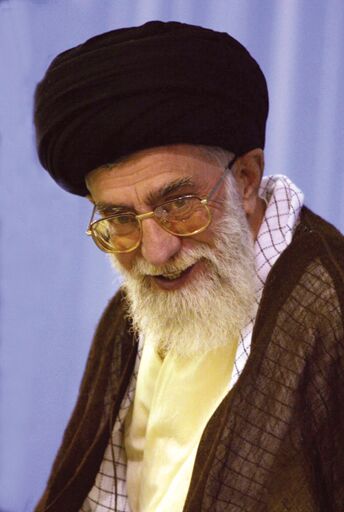
Russia, China Complicate Iran Situation
Europe and America have recently intensified their efforts to stop Iran’s nuclear program: Tehran has even been taken before the United Nations Security Council. As pressure against Iran grows, however, Moscow and Beijing are making it very clear which side of the fence they stand on.
To put it mildly, both nations’ support of European and American efforts has been half-hearted at best. China, concerned that backing UN sanctions against Iran might impair its burgeoning relations with the desert rogue, is doing as much as possible to thwart American and European efforts. As America and Europe confront Iran, China is making it abundantly clear that what Tehran can expect from Beijing is a warm handshake and a bucketload of money.
Even now, Bejing is pursuing a $100 billion energy deal with Iran—a deal that, as the Washington Post noted, is “complicating the Bush administration’s efforts to isolate the Middle Eastern nation and roll back its nuclear development plans” (February 17). It appears delegates from both nations sense a deadline—with potential sanctions looming for Iran—and are thus working feverishly to secure the details so they can sign the agreement as early as next month.
This deal comes at a bad time for America and Europe. Not only will it allow China to secure a foothold in Iran’s oil fields, but it “could also undermine U.S. and European initiatives to halt Tehran’s nuclear plans, possibly generating friction in Beijing’s relations with outside powers” (ibid.).
Beijing’s reticence to condemn Iran, and its willingness to oppose America and Britain on the nuclear issue, must be encouraging to Iran.
Russia too is doing all it can to prevent Europe and America from enforcing tougher penalites on Tehran. “Moscow and Beijing, each with heavy trade and investment stakes in Iran, do not want an International Atomic Energy Agency board meeting on March 6 to precipitate moves in the UN Security Council for sanctions against Tehran” (Reuters, February 23). Moscow is even negotiating a joint-enrichment program with Iran.
Russia’s and China’s refusals to back America and Europe on this issue proves the growing political independence and national self-determination of these nations. Their respect for American and European power is waning. To disagree with some middle African state on such an issue would be one thing—but to stand up against Europe and America demonstrates an ardent political determination and confidence.
China is bolstered by its newfound economic clout. Russia is emboldened by its central role in energy politics. These nations know they possess significant power and influence!
As Russia and China grow more independent in their foreign-policy decisions, and more inclined to oppose American and European will, we can expect the U.S. and Europe to respond in two very different ways.
Weighed down by internal and external strife and division, America is finding itself increasingly incapable of defending its position at the helm of the globe. The rise of Russia and China will marginalize America, hindering its power and influence.
The opposite will happen in Europe. The mounting independence and influence of the two Asian behemoths will be a catalyst for the continent to unify. Europe is under immense pressure right now. Islam is rising to its south, and even within its own borders. Resource-rich Russia is growing more inclined to act against European interests. China has become a global power. Europeans are increasingly realizing that they are going to have to rise to meet these new challenges. They are growing increasingly aware that they need to unite.
This is the most important trend you could watch for in world affairs over the next few months and years!
